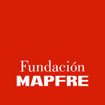ENDING Project
Fighting early school dropout resulting from the misuse of ICT

With the goal of designing a method to reduce school dropout rates, Fundación MAPFRE, together with four other European institutions (the national police force and PantallasAmigas, in Spain; Stiftung Digitale Chancen in Germany; and Instituto Politécnico de Porto, in Portugal), launched the ENDING project (ICT & Early School Leaving. Developing a New Methodology to Empower Children in Digital WellbeIng and Critical ThiNkinG).
Three years on, this initiative, which has received funding from the European Union through the Erasmus+ program, has been awarded the “Good practice” rating, a distinction given to projects that are identified as being excellent.
The ENDING approach is to involve the three key stakeholders in raising awareness, identifying and solving the problems caused by the misuse of digital technologies: families, teachers and the students themselves. For this reason, a guide has been designed for each group describing the different health risks (physical and mental) to which children are exposed, as well as the dangers to their safety derived from interaction in social media, online gaming, and so on.
The Teachers’ Guide includes five aspects that directly affect the teacher’s position when faced with the problems that the misuse of online digital technologies can pose for the personal and academic life of young people. These aspects are: physical and mental health, safety, cyberbullying and critical thinking. A fifth thematic module has been added to explain the importance of the UN Convention on the Rights of the Child, which has recently been updated to include the rights and obligations of children and how to protect them in the digital environment.
These same thematic areas make up the Guide for Families, which aims to provide parents with information and advice on how to detect possible problems arising from the excessive use of digital devices by children, as well as the risks associated with their exposure to the Internet and social media, as stated in the introduction to the chapter dedicated to Internet security.
Orienting, guiding and advising our children on how to use the Internet safely and effectively means making them responsible for their own actions on the net. And to steer their digital practices, it is essential that we are aware of the exact factors that can lead them, especially during pre-adolescence and adolescence, to commit illegal online actions.
The guide includes numerous tips and recommendations to help families in these situations.
Finally, the Students’ Guide has been designed as a manual that allows the program to be implemented autonomously in schools, encouraging the participation of children based on their own experience in the use of digital devices. The ENDING method, based on peer-to-peer training, has been successfully tested in several schools in Spain and Portugal.
All the project’s guides and materials can be downloaded free of charge at www.endingproject.eu. The guides, as well as the methodological appendix, are available in English, Portuguese, Spanish and German (Leitfaden Für Lehrer).

